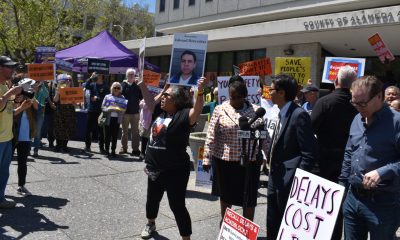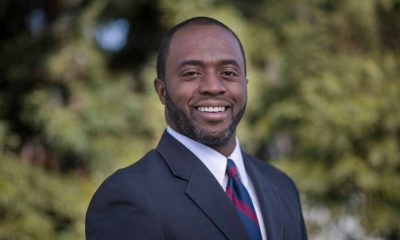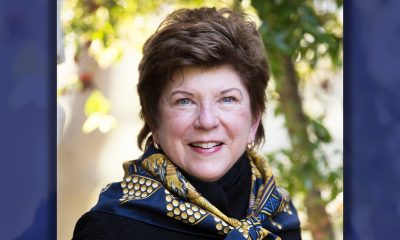Bay Area
Most Californians Worry Schools Won’t Reopen Fully Next Fall, Poll Says
The majority say they approve of how Newsom handled schools this year.
More than 4 in 5 California adults, including public school parents, believe that the pandemic has caused children, especially low-income children and English learners, to fall behind academically.
Six in 10 Californians are concerned that schools will not be open for full-time, in-person instruction in the fall, according to a survey by the Public Policy Institute of California (PPIC) released on April 28.
The annual survey of Californians’ perspectives on education also found that a majority approved of the way Gov. Gavin Newsom has handled K-12 public schools, although opinions were split along partisan lines, with 22% of Republicans and 79% of Democrats supporting him on the issue.
And perhaps in an indication of the erosion of support for public schools, 42% of parents say they would send their youngest child to a private school if cost and location were not at issue. This compares with 31% who would choose a traditional public school, 14% a charter school, and 13% a religious school. The preference for a private school increased from 35% last year and 31% two years ago.
The survey of 1,602 adults over 18 was taken from April 1-14 and was offered in English or a choice of Spanish and three other languages. The margin of error was 3.4%, plus or minus, overall, and 7.4%, plus or minus, for the 295 respondents who are public school parents.
Facing a recall election, Newsom can take solace in the poll’s finding that a majority of Californians (57% of adults, 64% of public-school parents) approve of how he has handled K-12 education.
“Majorities of Californians approve of the way that Governor Newsom is handling the state’s K-12 public schools and school reopening, while they remain deeply divided along party lines,” said Mark Baldassare, president, and CEO of PPIC.
However, a year ago, when the last survey was taken weeks after schools closed quickly in response to the first throes of the pandemic, his approval marks were higher, with 73% of adults and 78% of public school parents expressing approval.
The poll, which focused on education, also found:
Of those who said children were falling behind academically during the pandemic, 60% said that was happening by a lot and 22% by a little. The views were similar among ethnic and racial groups. Eight in 10 adults said they were concerned that low-income children were falling farther behind other children. More Blacks and Latinos were very concerned about this than whites;
Amid continuing debates and lawsuits claiming that schools aren’t opening quickly enough, slightly more adults overall than public school parents said that schools should at least be partially open now (53% vs. 48%), while 28% of all adults and 27% of public school parents said that schools should be fully open now;
Looking ahead to the fall, 61% of all adults said they were concerned that K-12 schools would not be open for full-time in-person instruction (24% very concerned, 37% somewhat concerned), and two-thirds of public school parents said they were concerned (25% very concerned, 41% somewhat concerned).
When it comes to their own schools, two-thirds of adults said they approved of how their school district handled closures during the pandemic. Support was highest in the Los Angeles area (74%) and the Inland Empire (68%) and lowest in Orange County and San Diego (54%). Approval among public school parents was 72%.
The clear majority of all adults said that teachers’ salaries in their communities are too low. About 1 in 3 said salaries are just about right while 7% said they are too high, and 3% said they didn’t know. Among racial and ethnic groups, 76% of Blacks said pay is too low, compared with 59% of whites, 61% of Asian Americans, and 62% of Latinos.
Last month, the U.S. Department of Education ruled that California school districts could substitute local assessments for the state standardized test, the Smarter Balanced assessment, under some conditions. Many districts are expected to exercise that option.
Asked whether they favor conducting year-end state testing this spring to measure the pandemic’s impact on student learning, 75% of all adults (and a similar proportion of public school parents) said they were in favor of continuing testing, with 23% opposed. Latinos were the most in favor (83%) and Blacks the least supportive (68%) with 70% of Asian Americans and whites in favor of continuing year-end testing.
As for the perennial issue of school funding, 49% of all adults, 53% of likely voters, and 51% of public school parents said that the current level of state funding for their local public schools is not adequate — about the same level as a year ago.
When it comes to school construction and renovation, 59% of all adults, 55% of likely voters, and 74% of public school parents said they would vote yes on a state bond measure to pay for school construction projects. Legislative leaders plan to place a bond on the state ballot in 2022.
Alameda County
Board of Supervisors Accepts Certification of Signatures, Will Schedule Recall Election May 14
The Alameda Board of Supervisors unanimously accepted the certification of the results of the valid signatures submitted for the recall of District Attorney Pamela Price on Tuesday evening. The Board will set the election date at a special meeting on May 14. Before the meeting, recall proponents and opponents held separate press conferences to plead their cases to the Board and residents of Alameda County.
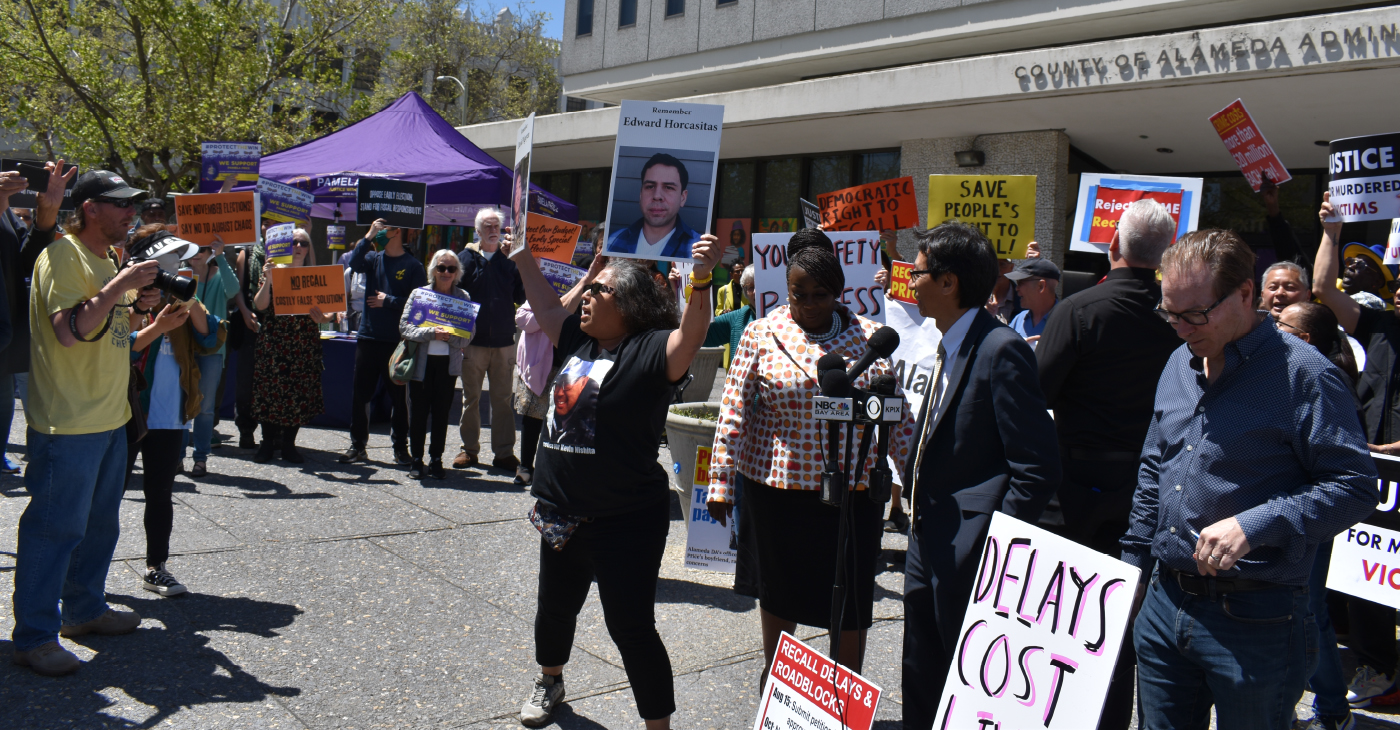
By Magaly Muñoz
The Alameda Board of Supervisors unanimously accepted the certification of the results of the valid signatures submitted for the recall of District Attorney Pamela Price on Tuesday evening. The Board will set the election date at a special meeting on May 14.
Before the meeting, recall proponents and opponents held separate press conferences to plead their cases to the Board and residents of Alameda County.
Price, who up until this point has made little public comment about the recall, held her press conference in Jack London to announce that the California Fair Political Practices Commission has opened an investigation into the finances of the Save Alameda For Everyone (SAFE) recall campaign.
The political action committee (PAC), Reviving the Bay Area, has been the largest contributor to the SAFE organization and has allegedly donated over half a million dollars to the recall efforts.
“Between September 2023 and November 2023, [Revive the Bay Area] donated approximately $578,000 to SAFE without complying with the laws that govern all political committees in California,” Price said.
Price accused the recall campaigns of using irregular signature-gathering processes, such as paying gatherers per signature, and using misleading information to get people to sign their petitions.
SAFE held their own press conference outside of the Alameda County Administration Building at 1221 Oak St. in Oakland, once again calling for the Board to certify their signatures and set a date for the recall election.
Their press conference turned contentious quickly as Price’s “Protect the Win” supporters attempted to yell over the SAFE staff and volunteers. “Stop scapegoating Price” and “Recall Price” chants went on for several moments at a time during this event.
Families of victims urged the Board to think of their loved ones whose lives are worth much more than the millions of dollars that many opponents of the recall say is too much to spend on a special election.
The Registrar of Voters (ROV) estimates the special election could cost anywhere from $15 to $20 million, an amount that is not in their budget.
The Board was presented with several options on when and how to conduct the recall election. They have to set a date no less than 88 days or more than 125 days after May 14, meaning the date could fall anywhere from late July to September.
But the County charter also states that if a general election takes place within 180 days of their scheduling deadline, the Board could choose to use the November ballot as a way to consolidate the two events.
In the event that Price is recalled, the Supervisors would appoint someone to fill the vacancy, though neither the County nor the California charter specifies how long they would have to pick a replacement.
The appointee would serve as district attorney spot until the next election in 2026. Afterwards, either they, if they run and win, or a newly elected candidate would serve the rest of Price’s six-year term until 2029. Price is unique as the only district attorney wo serves a term of six years.
The Board acknowledged that they knew last fall that this recall would come with its own set of complications when Measure B, which changed the local recall charter to match California’s, was first brought to their consideration.
Supervisors Nate Miley and David Haubert opposed discussing the measure, stating that the public would think that the Board was attempting to influence the recall campaign that had already taken off months prior.
“I think ultimately this feels like it’s going to end up in court, one way or the other, depending on who files what,” Haubert said.
Price’s legal team told the Post that the district attorney intended to consider all legal options should the recall election take place.
Miley stated that while he was in support of the amendment to the charter, he did not think it was right to schedule it for the March ballot as it would ultimately cause confusion for everyone involved.
“It has produced some legal entanglements that I think, potentially, could’ve been avoided,” Miley said.
Bay Area
Obituary: Former California Education Superintendent Delaine Eastin Passes at 76
Delaine Eastin, who served as a former state Assemblymember representing parts of Santa Clara and Alameda County — and the first woman elected as State Superintendent of Public Instruction — died at age 76 on April 23. Eastin passed away from complications caused by a stroke.
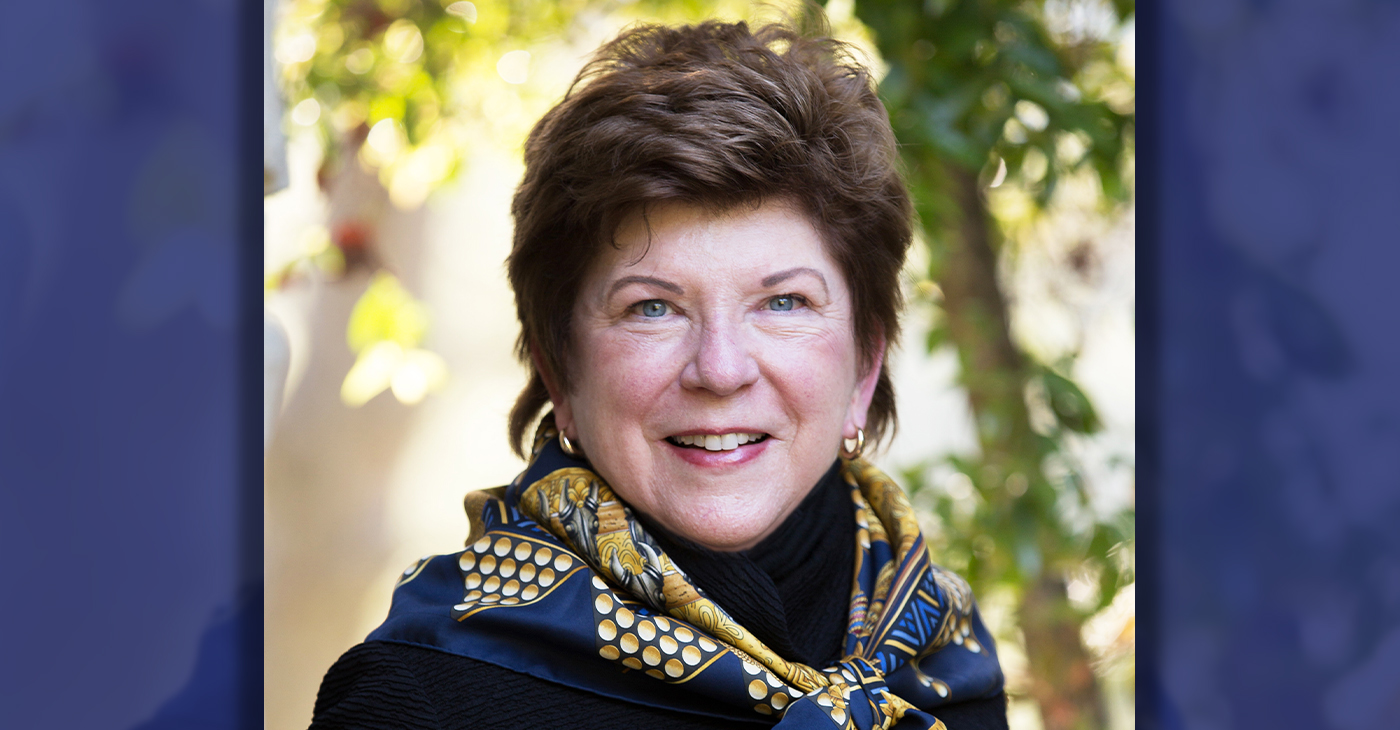
By California Black Media
Delaine Eastin, who served as a former state Assemblymember representing parts of Santa Clara and Alameda County — and the first woman elected as State Superintendent of Public Instruction — died at age 76 on April 23.
Eastin passed away from complications caused by a stroke.
Known for her power of persuasion, Eastin used her influence to be a champion for bipartisan issues that helped raise academic standards, lower class sizes, and emphasize the importance of conserving nature and the environment in schools.
Former Assembly Speaker Willie Brown and fellow legislative colleagues said that Eastin was in demand on the speech circuit while serving as a legislator.
“Few could engender the kind of emotion and passion she delivered in every speech,” Brown said.
State superintendent Tony Thurmond called Eastin a trailblazer who inspired fellow public servants.
“California lost an icon in our school system today. Delaine Eastin’s legacy as a trailblazer in public education will forever inspire us. Her unwavering dedication to California students — from championing Universal Preschool and the “A Garden in Every School” program to honoring our educators by establishing the California Teachers of the Year Awards — has left an indelible mark on our state’s educational landscape,” said Thurmond.
Thurmond honored Eastin’s legacy at the California Teacher of the Year Program, an honor that she established during her time as superintendent.
Bay Area
Zefer O’Neal Ward, 105
Zefer O’Neal Ward transitioned from this life on Feb. 19. She was 105 years old. A native of Pine Bluff, Arkansas, Zefer was the sixth of George and Zora O’Neal’s 14 children. Her joy of singing began at home at the tender age of 4 by being placed on a table and being asked to sing a song. By age 13, she was a member and directress of the youth choir at St. Paul Baptist Church. Zefer attended Merrill High School and Arkansas State College in Pine Bluff, Arkansas.
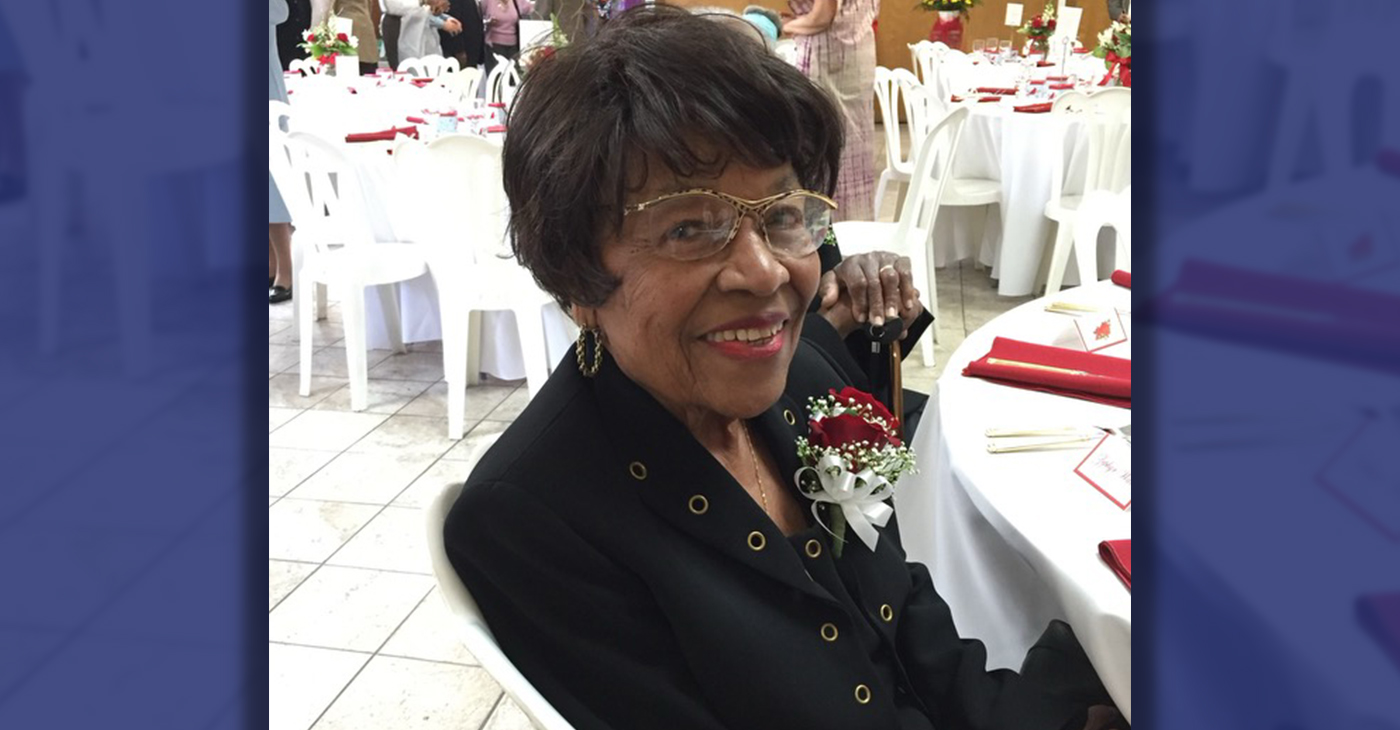
By Post Staff
Zefer O’Neal Ward transitioned from this life on Feb. 19. She was 105 years old. A native of Pine Bluff, Arkansas, Zefer was the sixth of George and Zora O’Neal’s 14 children. Her joy of singing began at home at the tender age of 4 by being placed on a table and being asked to sing a song. By age 13, she was a member and directress of the youth choir at St. Paul Baptist Church. Zefer attended Merrill High School and Arkansas State College in Pine Bluff, Arkansas.
In 1945, Zefer made her home in Oakland, California, where she established deep roots. It was in 1950 that she married the late William “Bill” Ward. That same year, she joined Downs Memorial Methodist Church under the esteemed leadership of Rev. Roy C. Nichols, where her angelic voice soon became a cornerstone of the church’s 8:30 a.m. worship service.
She went on to lend her voice and talents to various choirs in the church including the gospel choir and the formulation of the children’s choir under the guidance of the late Rev. Amos Cambric Jr.
Zefer’s gift of song extended far beyond the walls of her church. For decades, she brought solace and inspiration to countless souls through her performances at funerals, weddings, concerts, conventions and church programs throughout the Bay Area.
Her unparalleled artistry even graced the ears of the late Robert F. Kennedy during a performance at the University of California, Berkeley. To quote her, “I have been involved with singing all my life. Singing is a joy for me. Every time I sing, I pray that I will bring joy to someone. I know that the Lord has used me to touch and bless someone … singing is my life, my joy.”
Surviving Zefer are her two children; Norma Ward-Sledge, CEO and co-founder of Progressive Transitions, Inc. a program in Oakland that has become a beacon of hope for women and families affected by domestic violence and human trafficking; and William Wilson, of Raleigh, North Carolina, a retired business owner. She also leaves behind her sister Minnie O’Neal of Dupont, Washington, two grandsons both of Raleigh, North Carolina and a host of nieces and nephews.
In lieu of flowers, the family kindly requests contributions be made to Progressive Transitions, Inc., an organization that Zefer passionately supported.
There will be a “Memorial Tribute to Zefer” at 11 a.m. on Saturday, June 1 at Downs Memorial United Methodist Church, 6026 Idaho St. in Oakland.
A follow-up event, “Celebrating the Legacy of Lady Z,” will be held on June 22 at Z Café, 2735 Broadway Oakland at 2 p.m.
Please RSVP for this event via text or call (510) 917-0666.
-

 Community2 weeks ago
Community2 weeks agoFinancial Assistance Bill for Descendants of Enslaved Persons to Help Them Purchase, Own, or Maintain a Home
-

 Activism4 weeks ago
Activism4 weeks agoOakland Post: Week of April 3 – 6, 2024
-

 Business3 weeks ago
Business3 weeks agoV.P. Kamala Harris: Americans With Criminal Records Will Soon Be Eligible for SBA Loans
-

 Activism3 weeks ago
Activism3 weeks agoOakland Post: Week of April 10 – 16, 2024
-

 Community3 weeks ago
Community3 weeks agoAG Bonta Says Oakland School Leaders Should Comply with State Laws to Avoid ‘Disparate Harm’ When Closing or Merging Schools
-

 Community2 weeks ago
Community2 weeks agoOakland WNBA Player to be Inducted Into Hall of Fame
-

 Community2 weeks ago
Community2 weeks agoRichmond Nonprofit Helps Ex-Felons Get Back on Their Feet
-

 Community2 weeks ago
Community2 weeks agoRPAL to Rename Technology Center for Retired Police Captain Arthur Lee Johnson

